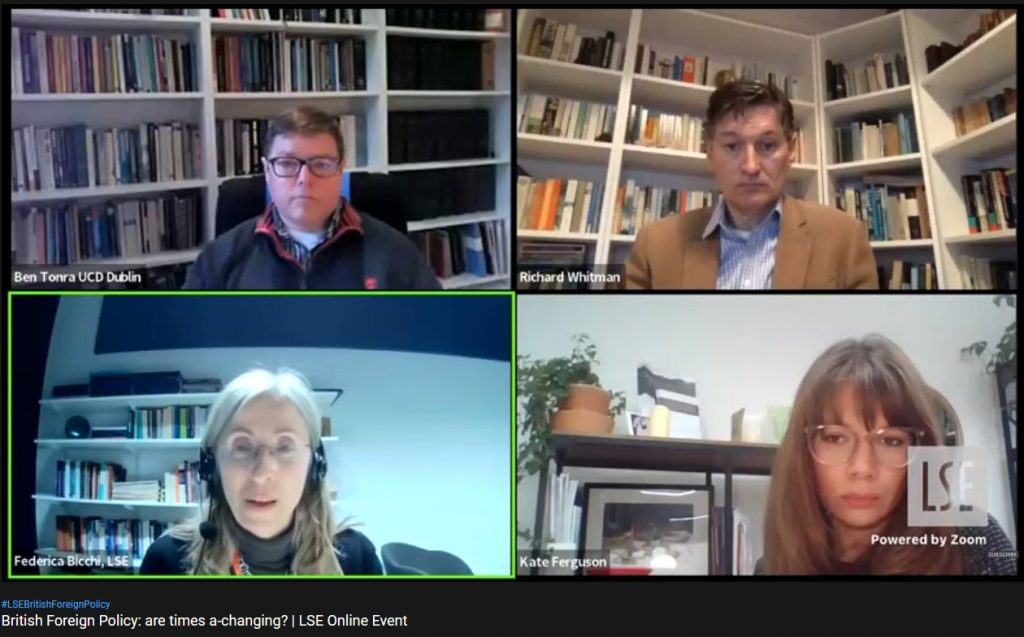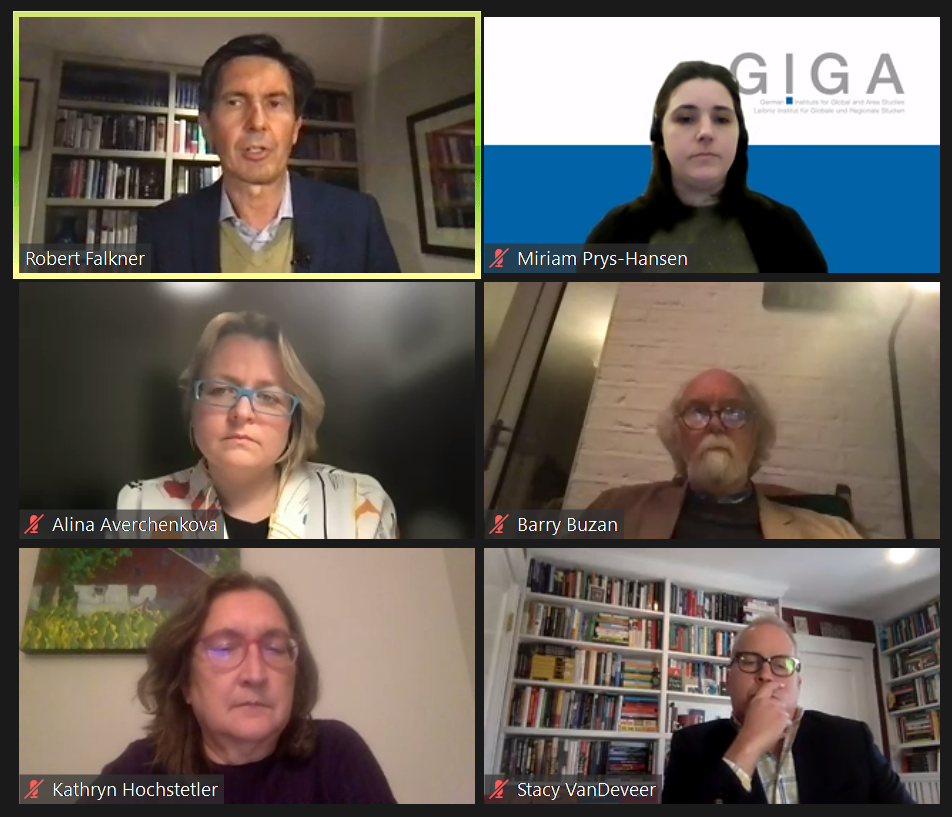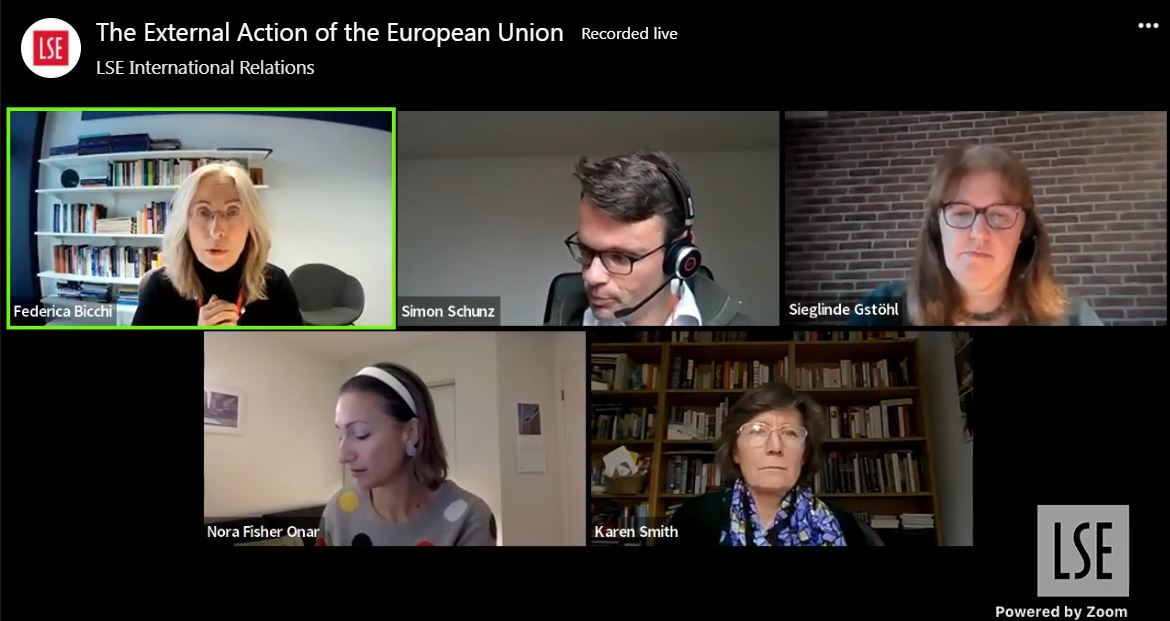On Tuesday 22 March 2022, Kate Ferguson, Ben Tonra, Richard G Whitman joined together with Federica Bicchi for a roundtable to discuss the role the UK is embracing in its foreign policy.
The event was organised by the #NEWDIP project, the LSE Department of International Relations, and the European Foreign Policy Unit.
- Find out more about the event and speakers
- Listen to or download the audio podcast (90 mins)
- Watch on YouTube (90 mins)

‘Global Britain in a competitive age’ is a phrase that the UK government has been eager to promote as it seeks to chart a new course for Britain on the world stage. Several challenges emerged, however, to British foreign policy, as discussed during the roundtable. Ben Tonra argues that Brexit has diminished Britain’s role in the world, particularly when it fails to meet its legal obligations, a point also made by Kate Ferguson with reference to Northern Ireland and the implications of undermining legal and normative standards when seeking to be a champion of democracy and the rule of law.
Beyond Europe there is a role for the UK to play, a point that Richard Whitman notes with examples, such as the UK becoming an ASEAN dialogue partner. However, there appears to be a limit to the substance of Britain’s foreign policy, with Tonra declaring that the Integrated Review’s Indo-Pacific tilt lacks credibility in a similar way to Blair’s ‘ethical’ foreign policy. Ferguson believes that there were opportunities for a reset after Brexit but that the past few years have been dominated by a lack of clarity and inconsistency.
The Integrated Review’s Indo-Pacific tilt lacks credibility in a similar way to Blair’s ‘ethical’ foreign policy.
Britain’s reaction to the crisis in Ukraine has highlighted some of the UK’s strengths and weaknesses. As Tonra notes, the UK’s strengths were demonstrated in its ability to supply military equipment and its commitment to and role within NATO and the Joint Expeditionary Force. On the other hand, the UK’s weaknesses reasserted themselves, a point eloquently elaborated on by Ferguson, who considered how the implementation of sanctions has been slow and Britain’s approach to supporting refugees has been constrained, not least as a result of the Borders Bill.
[The panellists] see potential for friendly relations both across the Channel and the Atlantic.
So what does the future hold for British Foreign Policy? In answering this question, the panellists gave arguably their most optimistic responses. They see potential for friendly relations both across the Channel and the Atlantic. Despite the upheaval of the withdrawal period, there is an opportunity to work with the EU which, as Whitman notes, is a prospect made all the more important in the face of aggression from the Kremlin. Moreover, Biden’s departure from the isolationism of his predecessor offers a beneficial opportunity for the UK to deepen or perhaps repair the so called ‘special relationship’. As Tonra stated, Britain’s role on the global stage will depend on how it chooses to play its hand.
Event report by Arjun Sanghera, BSc Politics and International Relations






